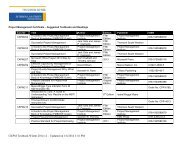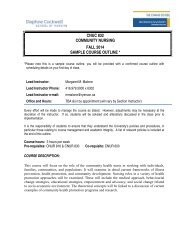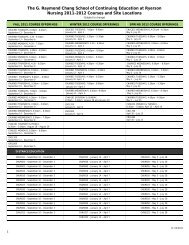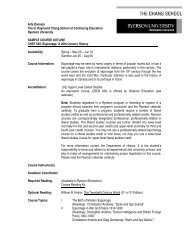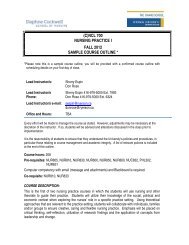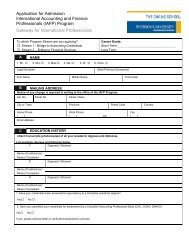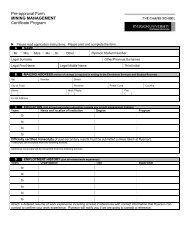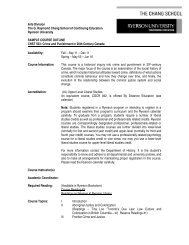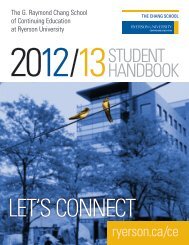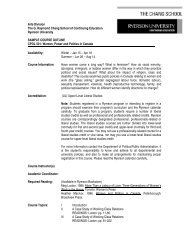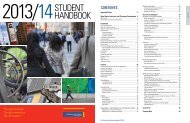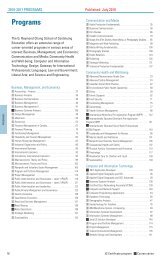CINT 906 - The Chang School
CINT 906 - The Chang School
CINT 906 - The Chang School
Create successful ePaper yourself
Turn your PDF publications into a flip-book with our unique Google optimized e-Paper software.
discussing ideas presented. Any alterations in course assignments, due dates, or marking schemes, as they appearin the outline, will be discussed prior to being implemented.TEXTS & READING LISTS:Reprotext. Original by Steinhouse, Karol, editor (1999) adapted by Marucci, Lisa (2008) Politicsof Sexuality: Power and Pleasure <strong>CINT</strong> <strong>906</strong>E-MAIL ACCOUNTS:Students are required to activate and maintain a Ryerson Matrix e-mail account. This shall be the official means bywhich you will receive university communications. See http://www.ryerson.ca/senate/policies/pol157.pdf.Student emails will be returned within three academic days. Emails on the weekend will be returned at the beginningof the week. All students are expected to compose emails in a professional manner. Messages using excessiveinternet abbreviations will not be answered.All students are expected to use their Ryerson email address for all communications with their instructor.EVALUATION:Student Evaluation1. 15% Interdisciplinary Group Social Analysis (week after course)2. 20% Interdisciplinary Group Presentation (week after course)3. 35% Term Paper Due (approximately one month)4. 15% Journal Due (two weeks after course)5. 15% Participation (students assigned to readings to facilitate class discussion, attendance, interactingwith class discussion, demonstrating attentiveness to class discussion, evidence that the material has beenread for class, completion of the group work assessment form and as evidenced by the depth of the journalassignment )1. Interdisciplinary Group Social Analysis 15%Objectives:‣ to constructively work within an interdisciplinary group in order that the unique perspective of eachdiscipline can be appreciated and commonalties and differences between disciplines explored;‣ to provide an interdisciplinary perspective on our social context;‣ to bring into consciousness the societal discourse related to sex, sexuality, and gender and criticallyevaluate;‣ to creatively document the process.A successful social analysis will be one that demonstrates the commonalties and the differences of each disciplinesperspective in a social space. Discourses of sex, sexuality, and gender will be discussed to make explicit thediscourse from each person’s perspective. <strong>The</strong> group will then critically evaluate the discourse. Agreement betweengroup members is not essential. However, each group member must be given the opportunity to express their ownunique analysis and how this relates to their own discipline. Group members should be open to experiencing thechallenge of views different from their own.2



